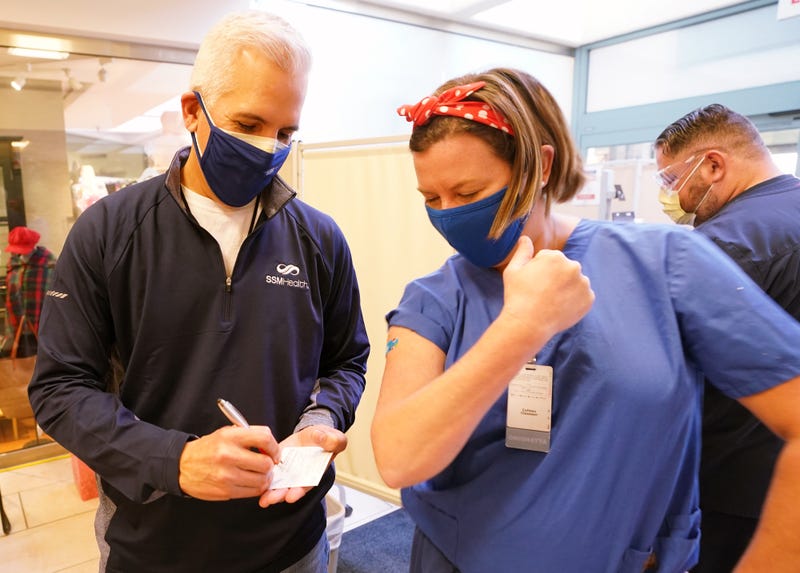
ST. LOUIS (KMOX) - COVID has taken a tremendous toll. The last year has brought enormous loss and sacrifice. We're weary and anxious to get beyond the pandemic. This week, KMOX News is searching for answers to the question so many of us have been asking "When Will It End?"
"I don't know if there's going to be a simple answer to that," says Dr. Alex Garza, Chief Community Health Officer at SSM Health and the Incident Commander for the St. Louis Metropolitan Pandemic Task Force. "I was thinking about this in preparation for this interview and thinking along the lines of a military campaign. And I don't think that there's going to be any grand signing on the deck of the USS, Missouri or anything like that."
Instead Garza tells KMOX News, it will be a slow end with cases continuing. He adds, at this point it's hard to say what metric will be used. Garza anticipates federal agencies will at least tell us as we enter a different phase, medically.
Even with vaccines, Garza is very cautious about loosening mitigations too soon and suffering a set back, "I liken this to when I was deployed overseas in Iraq and we used to always tell ourselves the soldiers that is that the most dangerous month is the month before you deploy home. And that's because you can get distracted and you start thinking about what's on the other side. Then you lose focus."
He does see a day when there will be improvement. "I think we'll be sufficiently towards the end of the pandemic by the end of this summer, beginning of the fall."
"Magic July 4th, you know, is that going to be when we can, grill out in our backyard with our friends that have been vaccinated?" asks Dr. Timothy Wiemken, Associate professor at St. Louis University School of Medicine, with the Department of Internal Medicine, in the Division of Infectious Diseases, Allergy and Immunology. Wiemken is referring to the Biden Administration prediction based on vaccine roll-out in the United States, "and I think now it's certainly a realistic light at the end of the tunnel."
Wiemken says while the COVID vaccines that have been developed are amazing, they're not a miracle, "it was never really a situation where we were going to end he virus." He reminds, the goal was to eliminate the bad outcomes and deaths, "We're going to live with this virus probably for the rest of humanity."
Wiemken says what we've learned this past year fighting COVID-19 could be game changer. "I do a lot of influenza research and to watch what happened with influenza when we started the lock downs last year, you know, flu disappeared faster than it had ever disappeared before in the history of influenza surveillance. This year in the United States, there was no flu season. Generally we see several hundred pediatric deaths due to flu every year. There's been one this year."
Wiemken stresses, many of the measures that have changed our lives so much -- social distancing and masking, for example -- could knock out a score of respiratory viruses that overwhelm health care every winter.
There are signs that people are only willing to hold out so long before they want back what they had before the coronavirus outbreak. The social end of the pandemic could come before the actual medical end. Dr. Alex Garza, "we're already starting to see that with certain States, declaring ends to mask mandates and opening up restaurants and bars well ahead of what the CDC recommends. As time goes on and more and more people receive the vaccine and cases drop in hospitalizations, there's going to be a tremendous amount of pressure to loosen up a lot of the mitigation strategies."
Is there the will to maintain some of those precautions? In our next report, KMOX's Maria Keena looks at whether masks could outlast the worst of the pandemic.
@2021 Audacy (KMOX). All rights reserved.
